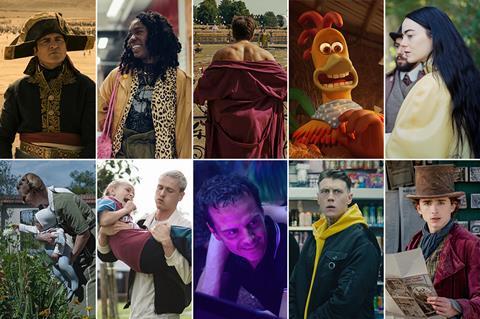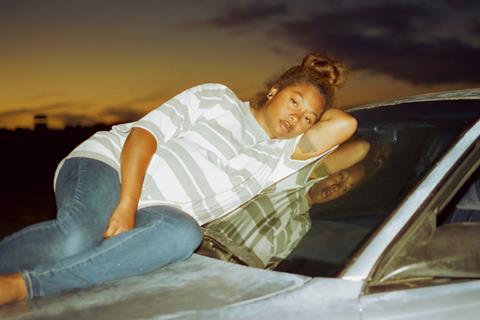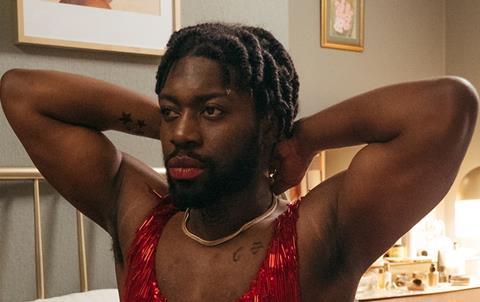There are only two feature categories reserved for British films at the Bafta Film Awards - and competition for nominations this year is especially fierce. Screen assesses the leading contenders.

There are many in the UK film industry who believe the country’s premiere film awards — the Baftas — should give more emphasis to celebrating local achievement. After all, virtually every other equivalent film awards from around the world, from France’s Césars to Mexico’s Ariels, does precisely that
Bafta contends that it elevates the home country’s film output by measuring it against the best from around the world — including the US — thus yielding a set of film awards that has true global relevance. The academy does, nevertheless, offer two categories reserved exclusively for UK features: outstanding British film and outstanding debut by a British writer, director or producer. Unsurprisingly, these two awards command a lot of attention in the home market.
Last year, the 10 nominees for outstanding British film once again straddled film genres and budgetary scale, from streamer-backed box-office hit Roald Dahl’s Matilda The Musical to plucky indie Brian And Charles. The top five films from first-round voting by the large opt-in British chapter are automatically nominated, and then a jury must pick five more from the next 10 choices to fill out the list of 10 nominees.
The jury process is confidential, but last year it may be surmised that the likes of The Banshees Of Inisherin, Living, Empire Of Light, Aftersun and possibly Roald Dahl’s Matilda The Musical were the top five voter choices, and thus automatically nominated. If so, then The Swimmers, The Wonder, See How They Run, Brian And Charles and Good Luck To You, Leo Grande were the five jury picks. The Banshees Of Inisherin won the award via final-round member vote.
Leading contender
In 2023, three of the 10 outstanding British film nominees went on to make a real impact at the Oscars, with Aftersun’s Paul Mescal and Living’s Bill Nighy nominated for best actor alongside Colin Farrell from The Banshees Of Inisherin — with the latter title achieving nine nominations overall, including best picture.
This year, the UK film that seems most likely to achieve multiple nominations at Bafta and Oscar is Yorgos Lanthimos’s Poor Things. The Searchlight Pictures and Film4-backed film has made a big splash since winning the Venice Golden Lion in September. Lanthimos’s The Favourite won outstanding British film and six other Baftas in 2019, as well as the best actress Oscar for Olivia Colman. It would be astonishing if this adaptation of Alasdair Gray’s novel — which stars Emma Stone, Mark Ruffalo and Willem Dafoe — does not figure in Bafta’s premier British category.
With eight features under his belt, four of them in the English language, Greece’s Lanthimos may now be considered a film veteran — but not one to match 86-year-old Ridley Scott, who is showing no sign of slowing down with age. Scott’s new film Napoleon has been qualified as British by Bafta, and the sheer ambition of his biopic should command voter attention. Scott has six Bafta nominations so far, including one in the outstanding British film category: in 2022 with House Of Gucci.
With Saltburn, Emerald Fennell is only on to her second feature, but she is already an awards veteran: her debut Promising Young Woman won the outstanding British film Bafta in 2021, as well as the original screenplay Bafta and Oscar. The audacious Saltburn stars Bafta winner Barry Keoghan as a misfit Oxford University freshman spending the summer holiday with the wildly wealthy family of a fellow student.
Andrew Haigh’s All Of Us Strangers swept seven categories at December’s British Independent Film Awards (Bifas), and has three Film Independent Spirit nominations. Andrew Scott, Paul Mescal, Jamie Bell and Claire Foy are all in contention for acting prizes, and the film could figure in adapted screenplay. Haigh’s 45 Years picked up an outstanding British film nomination in 2016, and it would be surprising if his adaptation of Taichi Yamada’s 1987 novel Strangers does not repeat the trick.
Poor Things, Napoleon, Saltburn and All Of Us Strangers face competition from another strong British awards contender this year: Jonathan Glazer’s German- and Polish-language The Zone Of Interest, adapted from the 2014 Martin Amis novel, and set on the edge of the Auschwitz extermination camp. It is rare for a foreign-language fiction feature to figure in the outstanding British category — but Babak Anvari’s Under The Shadowdid so in 2017.
Jury support

If all of the above five films are the top votes of the British chapter, that means other titles must rely on the support of the jury — having first made the top 15 by member vote. In addition to All Of Us Strangers, four other titles dominated the Bifas: Rye Lane, How To Have Sex, Scrapper and Femme. All have a good shot at landing an outstanding British film nomination.
Raine Allen-Miller’s south London romantic comedy Rye Lane has been charming audiences since premiering at Sundance Film Festival in January, and went on to gross $1.5m (£1.2m) at the UK and Ireland box office. The film has put the director and screenwriters Nathan Bryon and Tom Melia on the map, while also boosting the careers of lead actors Vivian Oparah (who won the breakthrough performance Bifa) and David Jonsson.
Likewise premiering at Sundance, and scooping the jury prize for world cinema dramatic, is Charlotte Regan’s Scrapper — another London-set indie, albeit in the outer eastern suburbs, with bags of charm. Lola Campbell and Harris Dickinson star as young daughter Georgie and previously absent father Jason, whose chilly relationship thaws after Jason belatedly steps up to parental responsibility.
Scrapper was shot by director of photography/filmmaker Molly Manning Walker, whose own debut feature How To Have Sex likewise launched this year — premiering at Cannes and scooping the Un Certain Regard prize. Mia McKenna-Bruce stars as a teenager enjoying a booze-fuelled holiday in the party town of Malia, Crete and enduring first sexual experiences that stray beyond the boundaries of her consent. McKenna-Bruce won the lead performance Bifa, and the film also picked up a supporting performance prize for Shaun Thomas.
Sam H Freeman and Ng Choon Ping’s Femme premiered in the Berlinale’s Panorama, and went on to secure 11 Bifa nominations, winning for joint lead performance (Nathan Stewart-Jarrett and George MacKay) and two craft categories. This dark revenge thriller and twisted queer love story could well find favour with the outstanding British film nominating jury, just as long as enough Bafta voters see it to land the film among the top 15 titles in the member vote.
Further titles that could end up on the list for jury members to consider include Earth Mama, which won the debut director Bifa for Savanah Leaf, Polite Society, which won debut screenwriter for writer/director Nida Manzoor and other admired UK indies such as Mahalia Belo’s The End We Start From, Dionne Edwards’ Pretty Red Dress, and Daniel Kaluuya and Kibwe Tavares’ Netflix-backed The Kitchen, which premiered as the closing night gala at BFI London Film Festival.
Not all of these films will land a nomination, and especially not if a couple of the more mainstream films crash the party. Wonka, from Paddington director Paul King, looks set to bring audiences flooding to cinemas this Christmas, and there should be no shortage of voters who see it. Both Paddington films were Bafta-nominated for outstanding British film, and King, co-writer Simon Farnaby and producer David Heyman will be hoping that Wonka receives the same honour.
Aardman Animations’ Chicken Run: Dawn Of The Nugget, directed by Sam Fell, is receiving a relatively modest theatrical outing from Netflix, but should be widely seen by voters at home. The original Chicken Runwas Bafta-nominated for best British film (as the category was then called) at the 2001 awards, and Aardman’s Wallace & Gromit: The Curse Of The Were-Rabbit won the category in 2005.
Other mainstream contenders include Kenneth Branagh’s A Haunting In Venice and Shekhar Kapur’s What’s Love Got To Do With It?, but it is hard to envisage them battling their way to a nomination, given the rich field of contenders.
Perhaps better positioned to find success are older-skewing box-office hits such as The Great Escaper and The Unlikely Pilgrimage Of Harold Fry. The former, from Oliver Parker, struck a chord with audiences, and voters may warm to a deft supporting turn from Glenda Jackson, who died this year. The latter, from Hettie Macdonald — making a belated big-screen follow-up to Beautiful Thing (1996) after a long interlude directing television such as Normal People — also delivered healthy box office, and stars Jim Broadbent.
Then there is James Hawes’ One Life, starring Anthony Hopkins and Johnny Flynn at two stages in the life of Nicholas Winton, who on the cusp of the Second World War rescued hundreds of children from Nazi-occupied Czechoslovakia. The uplifting tale feels well aligned with Bafta voters, but if it fails to make the top five in outstanding British film, will the nominating jury include it among its own five picks to round out the 10 nominees?
There are also films from seasoned indie auteurs Ken Loach, James Marsh and Joanna Hogg. Loach has six outstanding British film nominations, winning for I, Daniel Blake in 2017, and now tries again with culture-clash drama The Old Oak. Marsh won the award twice — with Man On Wire and The Theory Of Everything — and competes this year with Samuel Beckett biopic Dance First. Hogg is seeking to score her first ever Bafta nomination with spooky drama The Eternal Daughter, starring Tilda Swinton in a dual role.
Among the 78 films submitted for outstanding British film, 24 are documentaries — which are rarely nominated in the category, the last occasions being For Sama in 2019 and Notes On Blindness in 2016. If one does manage to battle through this year, it could be Steve McQueen’s epic Occupied City, or perhaps Errol Morris’s The Pigeon Tunnel (about author John le Carré), or Kevin Macdonald’s High & Low: John Galliano. More likely, these films will find a home in Bafta’s documentary category.
OUTSTANDING BRITISH DEBUT
First features vie for jury-determined honour

Last year, Charlotte Wells scooped the Bafta for outstanding debut by a British writer, director or producer with her father-daughter drama Aftersun — edging out fellow fiction nominees Blue Jean and Good Luck To You, Leo Grande and documentaries Electric Malady and Rebellion. All seven of the filmmakers (five directors, a producer and a writer) nominated in the category were women.
Women look set to figure prominently again this year — at least if the jury is persuaded by Bifa favourites Rye Lane, Scrapper and How To Have Sex. The highly diligent jury process involves jurors meeting multiple times in the year to discuss all the eligible titles at length, and then determining the longlist, nominees and winner. Bafta voters play no role, unless selected for jury duty.
Jurors may also be impressed by Savanah Leaf’s Earth Mama and Nida Manzoor’s Polite Society, which would once again give a clean sweep of female director nominees, although male names would creep in with Rye Lane writers Tom Melia and Nathan Bryon, and also if debut producers are included in the film-team nominations (Scrapper’s Theo Barrowclough, for example).
Such a move would be to ignore Sam H Freeman and Ng Choon Ping, making a strong feature debut with their BBC Film-backed Femme. The pair’s short of the same name was Bafta-nominated in 2022, and jurors may wish to reward a tonally risky feature that needed pitch-perfect execution from the male filmmaker pair.
Vying for a nomination is also Mahalia Belo with The End We Start From, starring Jodie Comer as the mother of an infant in the aftermath of a flood that has submerged UK cities. Similarly rocking a dystopian-future vibe is Daniel Kaluuya and Kibwe Tavares’ The Kitchen, set amid an improvised community in a police-besieged housing estate. Also in the mix are Adura Onashile’s Girl, Dionne Edwards’ Pretty Red Dress and Thomas Hardiman’s Medusa Deluxe.
Not all the films vying for jury support are indies from novices: TV veteran Alice Troughton (Cucumber, Baghdad Central) makes her feature directing debut with The Lesson, a twisty thriller about an aspiring author (Daryl McCormack) taking a tutor post in the house of a bestseller writer (Richard E Grant). The film is from debut screenwriter and comedy performer Alex MacKeith. Seasoned TV director James Hawes (Slow Horses) is also in contention for One Life.
Documentaries vying for inclusion include Bifa nominees such as Ella Glendining’s Is There Anybody Out There?, Alice Russell’s If The Streets Were On Fire and Sophie Compton and Reuben Hamlyn’s Another Body. Then there is Bobi Wine: The People’s President, whose UK-resident co-director Christopher Sharp should be eligible for nomination. As ever, the jury has a tough choice while following Bafta’s brief to name only five nominated titles.






![The Brightest SunScreen[Courtesy HKIFF]](https://d1nslcd7m2225b.cloudfront.net/Pictures/274x183/3/5/0/1448350_thebrightestsunscreencourtesyhkiff_312678.jpg)


















No comments yet